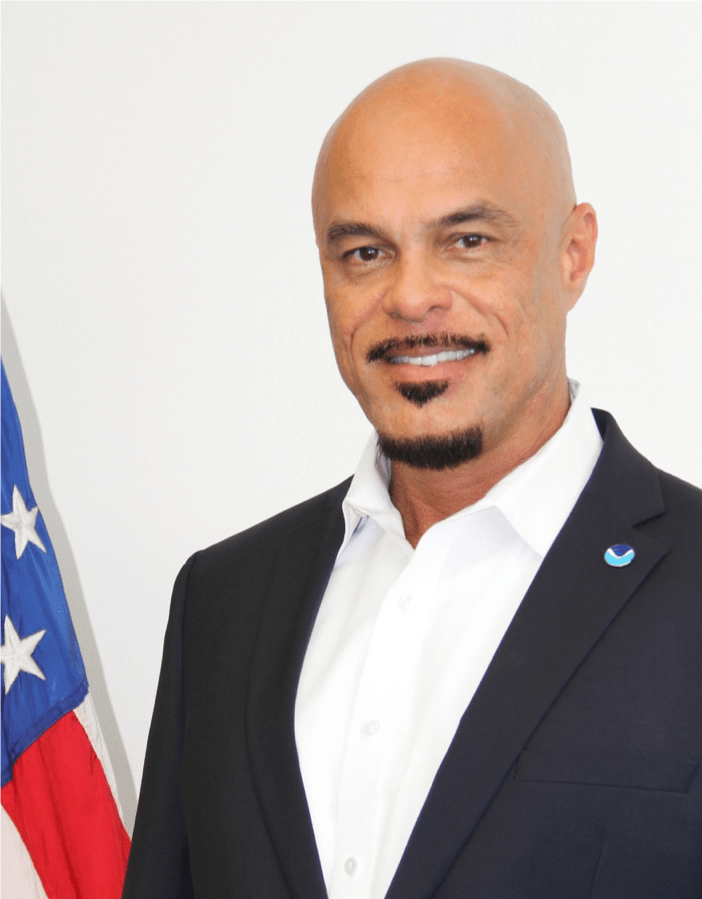
Research Highlights
Research Interests
Ocean transport and mixing, from sub mesoscale to global scale
Hourly to decadal-scale ocean temperature circulation changes, often using a synthesis of in-situ and remote observations
Pathways and mechanisms of the global overturning circulation
John Cortinas, Ph.D.
Deputy Assistant Administrator for Science, NOAA’s Office of Oceanic and Atmospheric Research
Former Director, NOAA’s Atlantic Oceanographic and Meteorological Laboratory
305.361.4300
4301 Rickenbacker Causeway
Miami, Florida 33149
John Cortinas, Ph.D. is the Deputy Assistant Administrator for Science for NOAA’s Oceanic and Atmospheric Research (OAR), and is responsible for overseeing the science activities undertaken at OAR’s 10 national laboratories and several OAR-wide offices. Prior to this role, Dr. Cortinas oversaw an expansive science portfolio from 2019-2024 as director of NOAA’s Atlantic Oceanographic and Meteorological Laboratory (AOML), with a focus on studying the weather, ocean, and ecosystems in the greater Atlantic Ocean region. Before AOML, he served nine years as Director of OAR’s Weather Program Office (WPO), and eight years as Director of the OAR Cooperative Institute Office.
Throughout his career, Dr. Cortinas has been a passionate advocate for underrepresented groups in science, technology, engineering, and math, and is a member of several scientific organizations that work to improve diversity, such as the Society for the Advancement of Chicanos and Native Americans in Science, Out to Innovate, Latinos@NOAA, NOAA Pride, the American Geophysical Union, and the American Meteorological Society (AMS), for which he is currently one of the initial members of the AMS Culture and Inclusion Cabinet. He has authored and co-authored many scientific articles and served on numerous American and international scientific working groups, councils, committees, and senior-level advisory committees. Dr. Cortinas is a Fellow of the American Meteorological Society, and has received numerous awards, including a Presidential Rank Award from President Biden in 2022.
Dr. Cortinas holds a B.S. in Meteorology from Metropolitan State University, and a Ph.D. in Geophysical Sciences from the Georgia Institute of Technology.
Deputy Assistant Administrator for Science, NOAA’s Office of Oceanic and Atmospheric Research
Former Director, NOAA’s Atlantic Oceanographic and Meteorological Laboratory
2008, Key Executive Leadership Program Certificate, American University, Washington, D.C.
1992, Ph.D., Geophysical Sciences, Georgia Institute of Technology, Atlanta, GA
1987, B.S., Meteorology, Metropolitan State University of Denver, Denver, CO
1982-1984, Geography, University of Nebraska at Omaha, Omaha, NE
2022 Presidential Rank Award for Meritorious Service
For exceptional leadership throughout more than 15 years of federal service that has led to significant improvements in NOAA’s ability to provide accurate and timely forecasts and warnings for many types of extreme weather, as well as being an exemplary role model for NOAA’s workforce and others from underrepresented communities by working tirelessly to advance diversity and inclusion across NOAA.
2019 NOAA Administrator’s Award
For exemplary leadership in implementing the WOMEN of NOAA campaign.